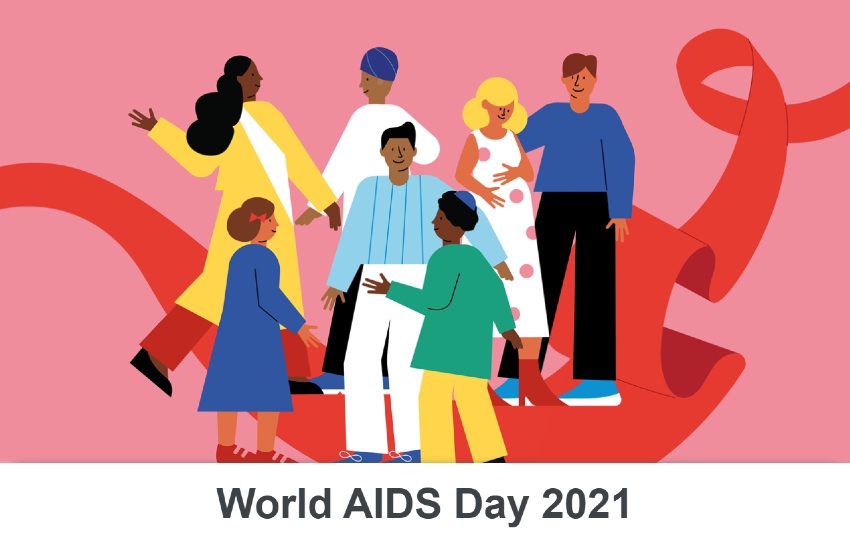The world in 2021 is facing two colliding pandemics. On the one hand, there is COVID-19 that has been going on for the past two years. On the other, there is still HIV/AIDS affecting millions in the world since 1981.
The simultaneous existence of both viruses only makes things worse for HIV patients. With national Healthcare systems at the brink of collapse, it is harder for them to receive treatment. At the same time, people living with HIV are at a higher risk of COVID-19 complications.
The celebration of World AIDS Day takes place every year on the 1st of December to raise awareness on HIV. This day each year, individuals and organizations all over the world bring attention to the HIV epidemic to increase awareness and knowledge on this important issue. It is critical to inform and speak out against the HIV stigma while calling for a renewed effort to deal with AIDS.
The World AIDS Day 2021 theme
The theme for World AIDS Day 2021 is “Ending the HIV Epidemic: Equitable Access, Everyone’s Voice.” Also, this important day is celebrated with a red HIV ribbon symbolizing awareness and support for people living with HIV.
The World AIDS Day 2021 focuses on the growing inequalities exacerbated by COVID in accessing essential HIV services. This year aims to reach out to all those left behind and who do not have access to necessary treatment. Accessing HIV services should be equitable to everyone irrespectively of their ethnicity, gender, sexual orientation, and socio-economic background.
For World AIDS day 2021, the World Health Organization (WHO) calls for:
- Re-committing to end HIV
- Tackling HIV and COVID-19 together
- Focusing on equality
- Concentrating on those left behind
Ending the pandemics
HIV has remained a global health crisis for so many years with no signs of stopping. But through our fight with AIDS, we’ve learned a lot when it comes to dealing with AIDS or any other pandemic. Indeed, amid the coronavirus pandemic, there is an open window for a renewed approach to fighting HIV.
What we have learned so far is that the world needs a more resilient public health system that can ensure equitable treatment of all. It is crucial to fight misinformation and stigma based on prejudice or ignorance. Further, innovation in healthcare and science should be made affordable and accessible to everyone without delays. Finally, we need to rebuild trust in our healthcare systems and support health professionals as they are essential to cover our urgent medical needs.


